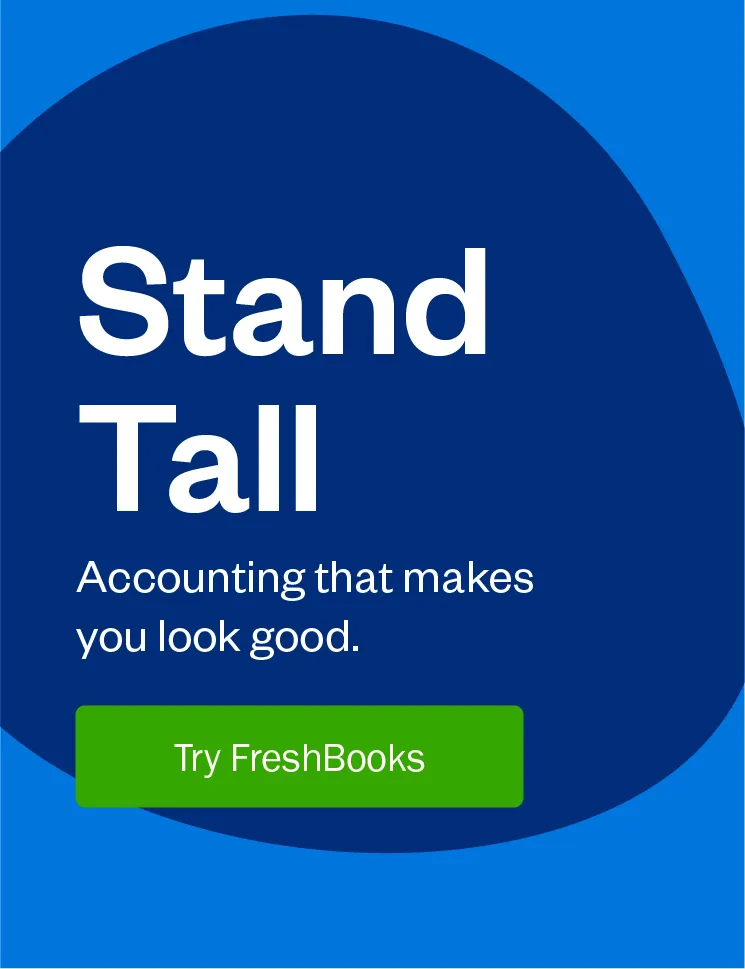Keep these 7 freelancer tax tips in mind as you close the books this year, to give yourself every possible tax advantage and avoid costly penalties.

As the end of the year rolls in, you probably wish you had a CFO who could provide you with tax tips or magically handle all your books, year-end tax planning, and budgeting. But for both freelancers and small business owners, wrapping up the year-end finances is just another thing to add to an already busy schedule.
However, getting your business financially fit for the new year doesn’t have to be overwhelming.
Buckle in and take on as much as you can in the last month of the year. To help, keep these 7 tax tips in mind as you close the books on the previous tax year so you can give yourself every possible tax advantage (and avoid costly penalties) at tax time.
1. Review Your Estimated Tax Payments
When you’re self-employed, tax time isn’t just once a year. You’re typically responsible for making estimated payments 4 times a year to the IRS. Keeping up with these tax payments will help ease the blow of having to make a massive single payment in the spring, as well as avoid any underpayment penalties.
Assess your revenue for the year and review what you’ve already paid towards your taxes to date. If you’re at risk of underpaying, make up the shortfall now.
2. Plan Your End-of-Year Expenses and Revenue
By now, you should have a fairly good idea of how the last tax year stacks up compared to previous years. For instance, did you have a banner year, or were things a little slow? If your income is higher than normal, you may want to think about sending out invoices for December projects in January. (Just make sure your clients don’t require bills to be in by the end of the year.)
In addition, you may want to pull the trigger on some additional equipment purchases or other business expenses this year if it will help you reach a higher tax bracket. Spending wisely on your business (i.e., those things that will help you increase productivity or expand your business) is one of the smartest investments you can make.
3. Squeeze in State Tax Payments
Purchasing a new computer isn’t the only way to lower your taxable income for the year. Pay your state taxes now, and maybe squeeze in an extra mortgage payment at the end of December. You’ll need to pay these bills eventually, so making the payments before the calendar changes means you can deduct these expenses from your taxable income next year.
4. Think About Turning Your Sole Proprietorship into a Corporation or LLC
If you started out as a sole proprietorship, you may want to consider incorporating or forming an LLC (Limited Liability Company). The main reason to do so is to separate your personal and business assets. It also helps protect your personal assets from mishaps that may happen to your business.
In addition, these business structures can give you extra flexibility in paying your taxes. Talk with a CPA or tax advisor to see if incorporating and electing S Corporation status could help lower your self-employment taxes.
Take some time now to research the different business structures or chat with an expert. If you decide to move forward, the best time to submit your paperwork is by the end of the year or the start of next year. It simplifies your tax filings and paperwork if your business is the same business entity throughout the entire tax year.
5. Meet with a Tax Expert Now
Do you typically wait to contact your CPA or find a tax advisor in March or April? At that point, experts can help you prepare and file your taxes, but it’s too late to strategize on any actions to lower your tax bill. Instead, schedule an appointment with a tax accountant before the year ends. This will give you plenty of time to act on their advice—for instance, make a large equipment purchase, open a new retirement account, or form a corporation.
6. Maximize Your Retirement Contributions (as Much as You Can)
As a self-employed individual, you need to be extra diligent about your retirement savings since you don’t have a traditional 401(k) and automatic withdrawals taken from each paycheck. It’s all too easy to push these contributions down to the bottom of the financial priority list. Retirement accounts, like IRAs, not only help you build a much-needed retirement nest egg, but contributions also lower your taxable income for the year.
If you aren’t already contributing the maximum to your retirement plan ($6,500 per year for a Roth or traditional IRA, or $7,500 if you’re 50 or older), check your budget to see if there’s any extra money you could move now. Also, consider setting up an automatic contribution for next year to help keep you disciplined. You’re less likely to miss money you never saw in your checking account in the first place!
7. Close an Inactive Business
If you started a business but are no longer actively pursuing it, you need to officially shut it down. If you formed an LLC or corporation, you’ll need to dissolve this business entity with your state. If you applied for a reseller’s license or another permit from your local municipality, you’ll need to terminate those permits.
This is one task you shouldn’t procrastinate on. If you don’t officially close the business this year, then you’ll be expected to file taxes, file an annual report, and pay annual dues for the next tax year. Save yourself the headache and extra fees, and get this paperwork in before the end of the year (it won’t take too long to do).
Take Stock for Next Year
This is the perfect time of year to assess where you are and where you want to go. Assess your current financial situation by running some rough profit-and-loss estimates. You’ll want to dive into the nitty-gritty bookkeeping numbers, as well as set aside time for big-picture soul-searching.
Are you happy? Do you feel in control of your business? Do you feel confident and financially secure? Make a plan for the new year by doubling down on the positives and focusing on the areas that need improvement. Remember: You’re not just a freelancer; you’re a business owner. Make sure you are calling the shots for your future.
This post was updated in December 2023.

Written by Nellie Akalp, Freelance Contributor
Posted on December 13, 2019

 A Freelancer’s Handy Guide to Quarterly Taxes
A Freelancer’s Handy Guide to Quarterly Taxes Make Tax Time Easy: A Must-Read Tax Checklist for Your Small Business
Make Tax Time Easy: A Must-Read Tax Checklist for Your Small Business How Your Business Structure Affects Your Taxes
How Your Business Structure Affects Your Taxes






